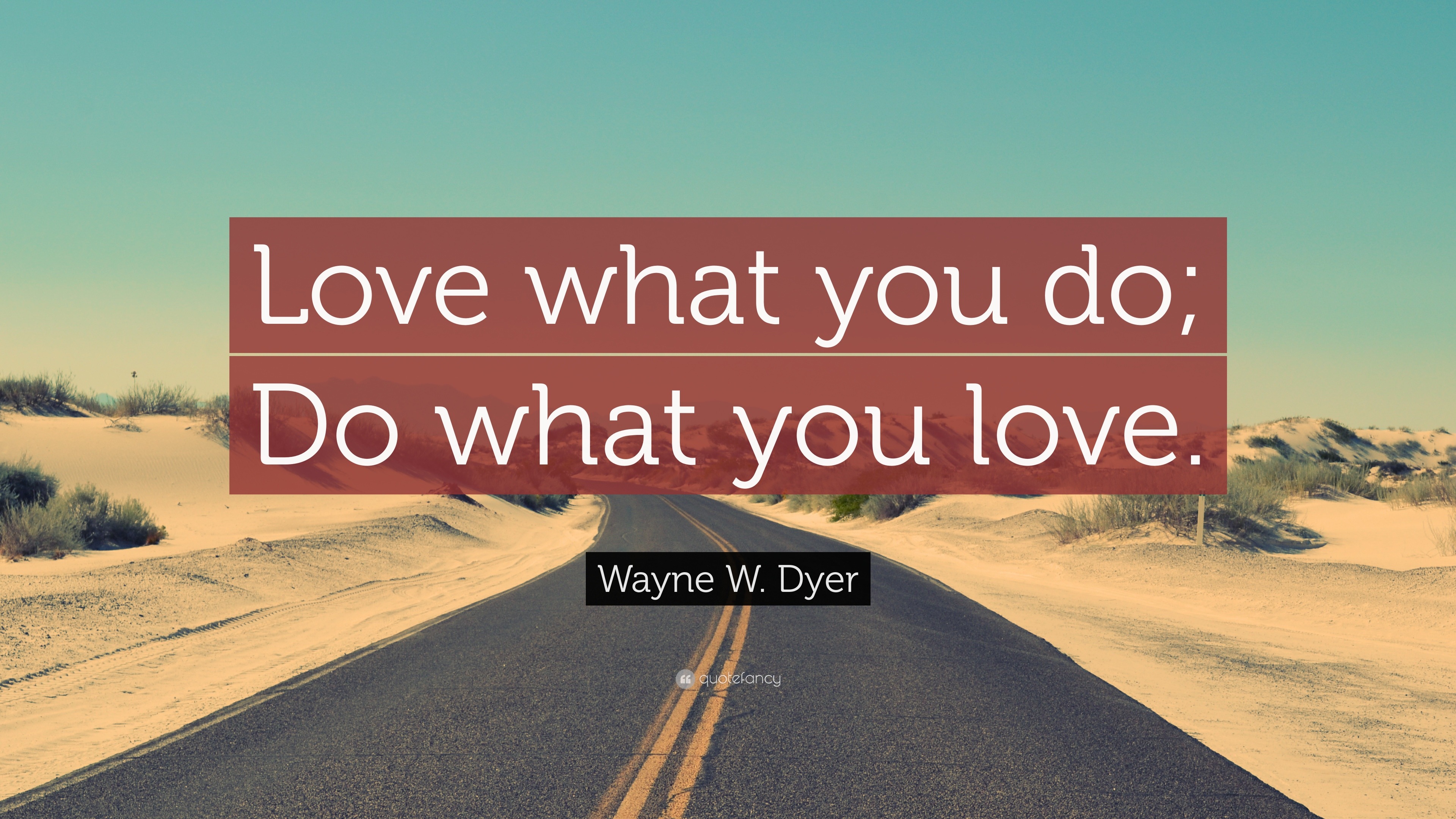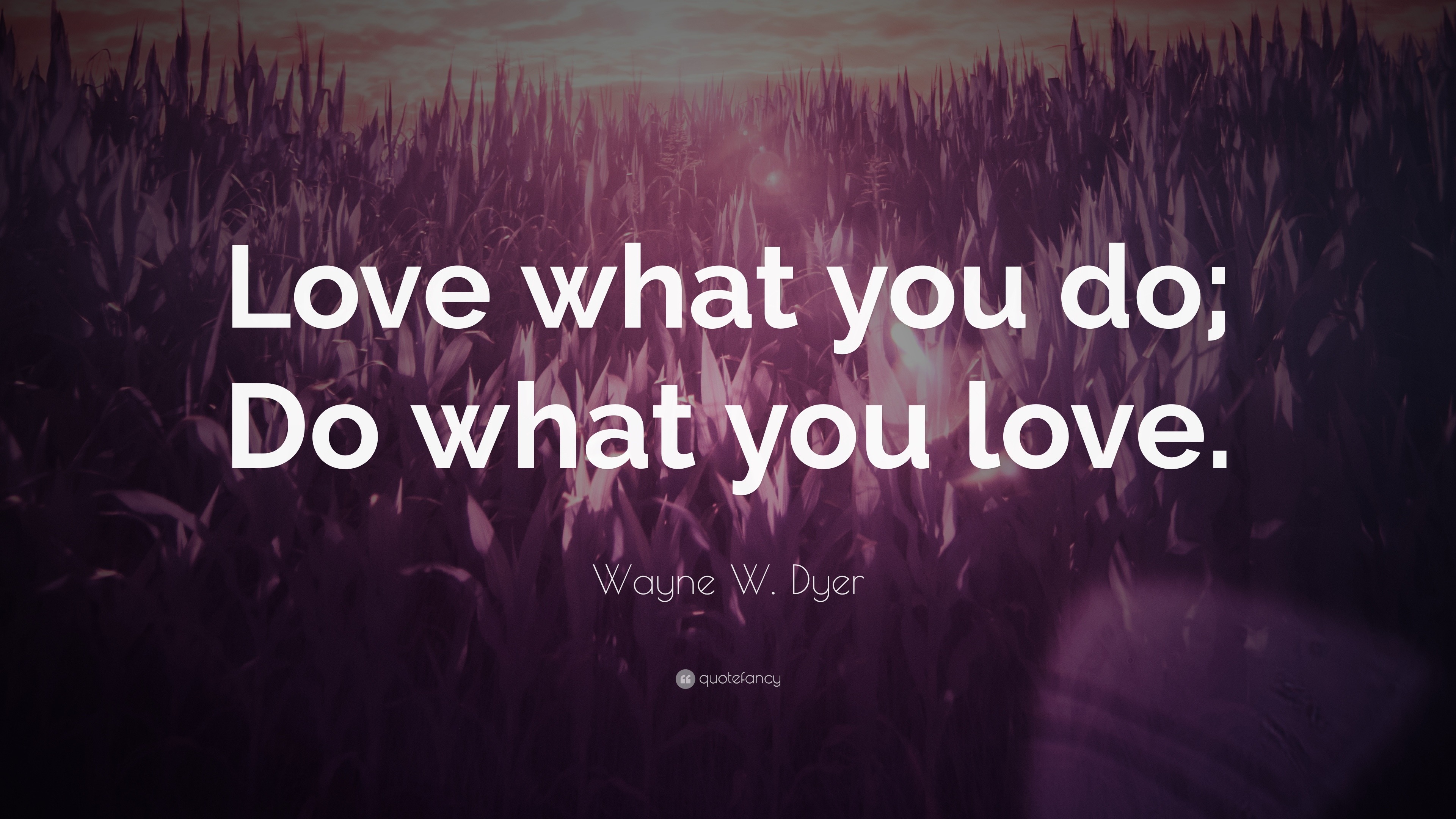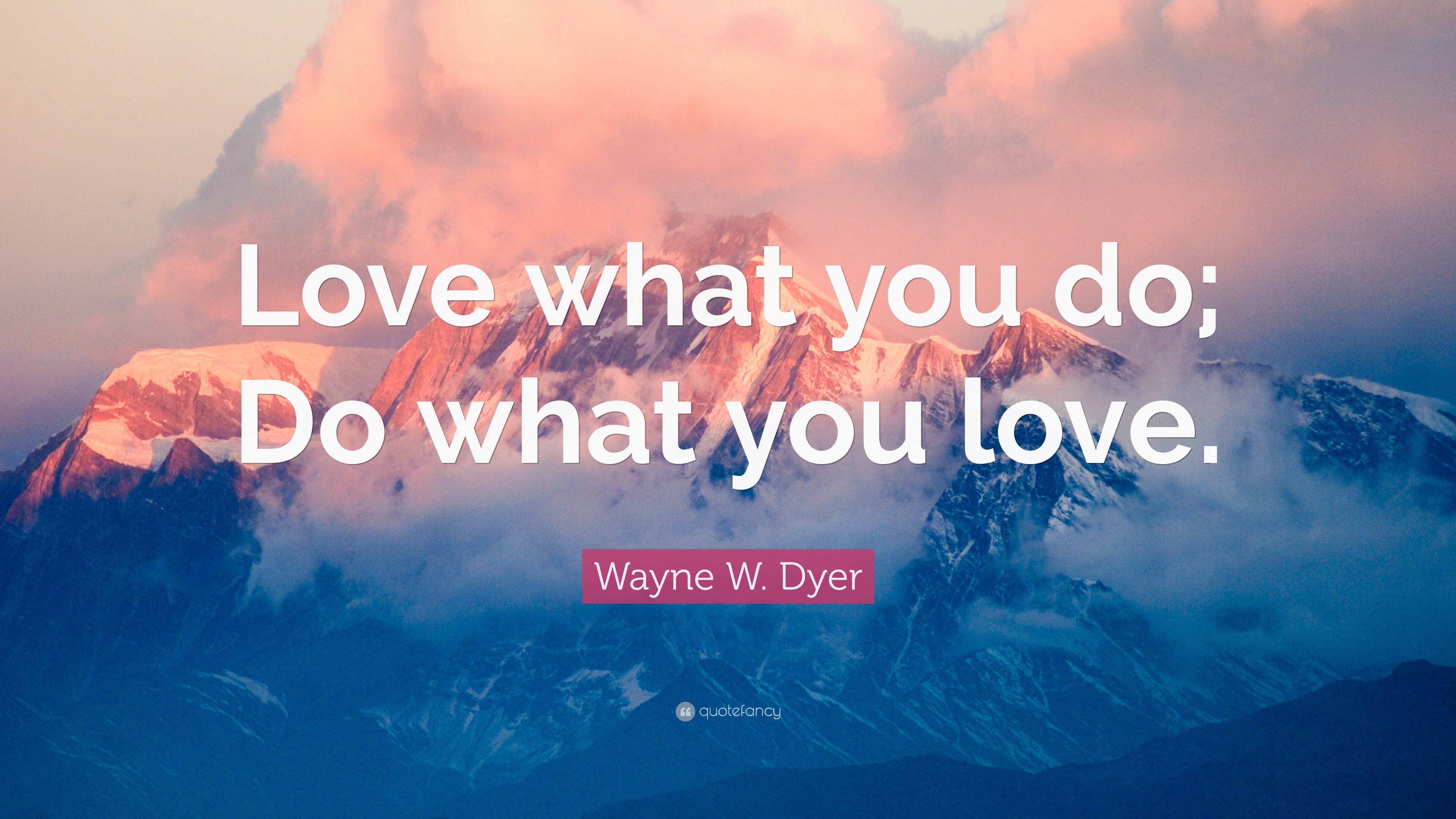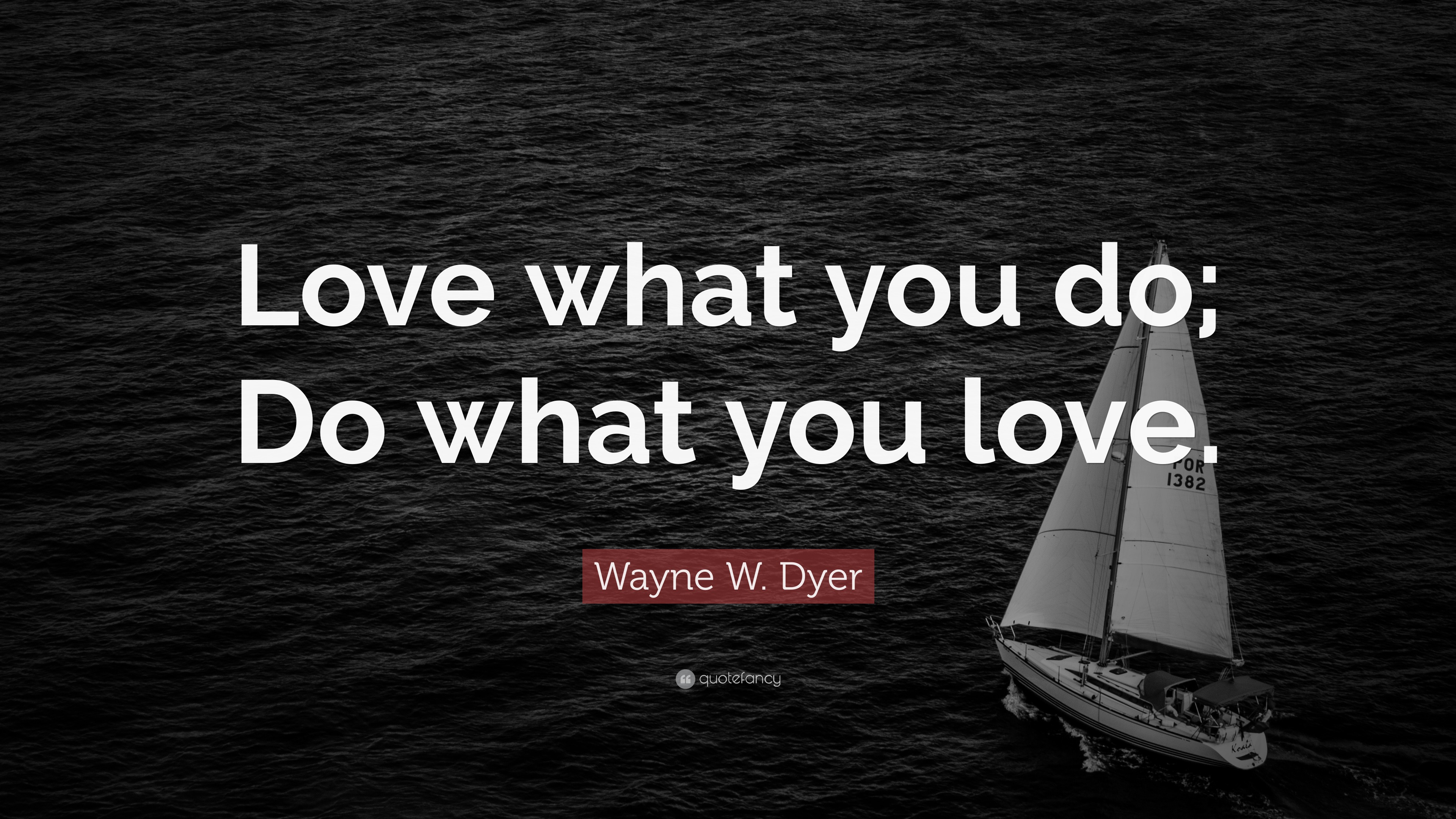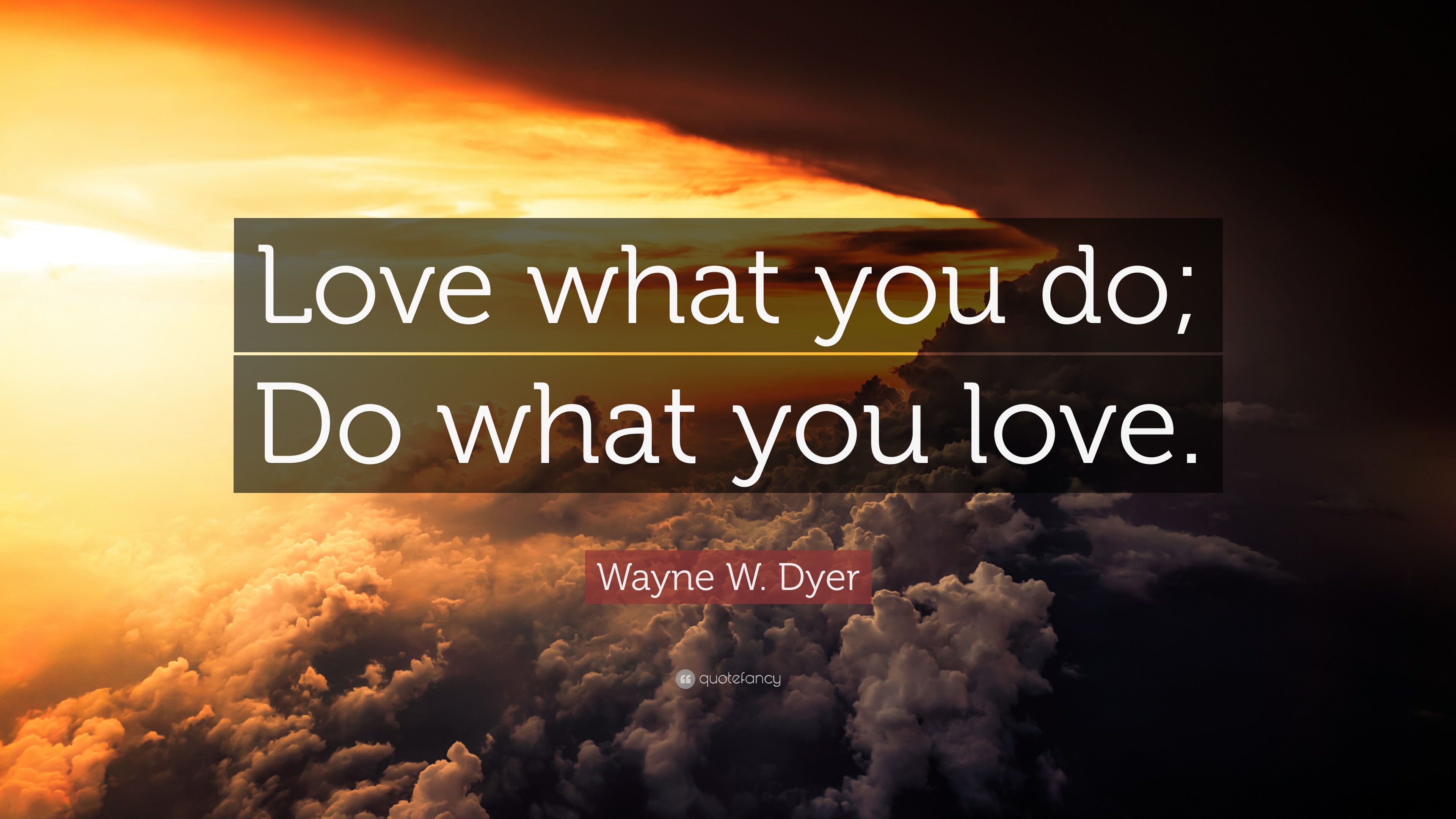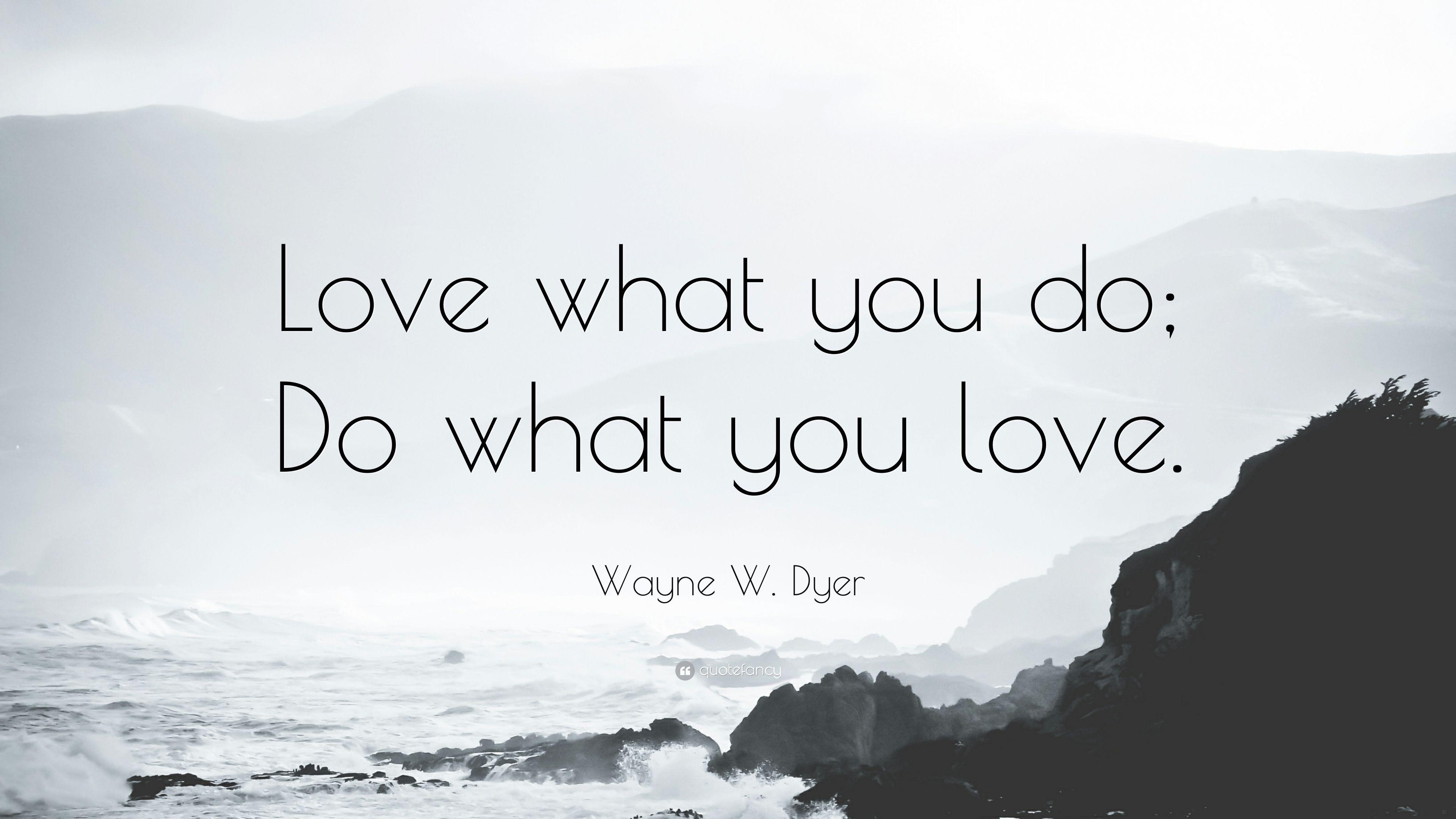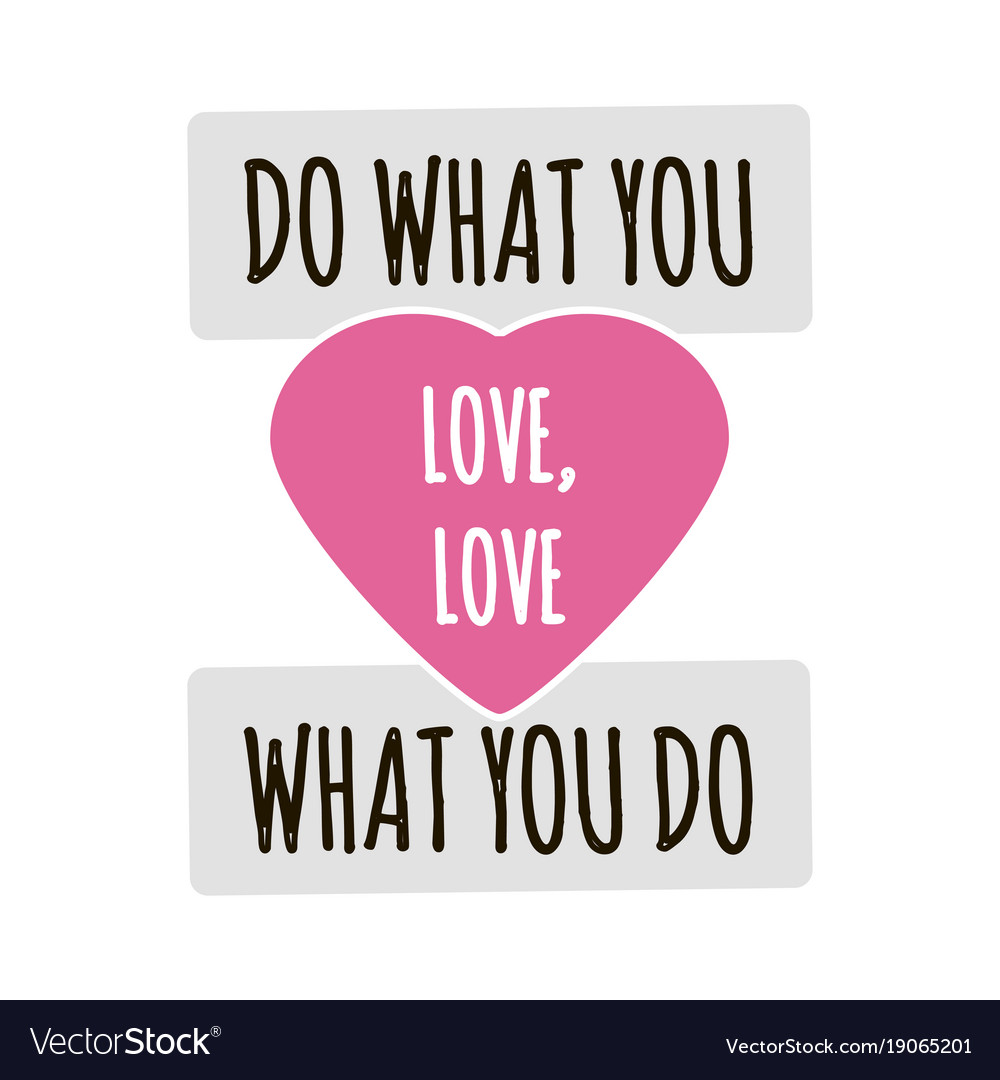Love What You Do Or Do What You Love

A nationwide debate rages: is job satisfaction found in loving what you do, or in simply doing what you love, regardless of the job itself? This question is not merely philosophical; it’s impacting career choices, employee retention, and overall workforce morale across the United States.
The core argument centers on whether passion should dictate career path, or if contentment can be cultivated in any role. This is a crucial debate that is shaping career paths and workforce satisfaction.
The Passion Paradox: Is "Love What You Do" Realistic?
Advocates of the "love what you do" philosophy emphasize the importance of aligning personal passions with professional pursuits. This approach suggests that intrinsic motivation leads to higher performance, increased job satisfaction, and reduced burnout. But is it always feasible?
According to a 2018 Deloitte study, "Only 20% of US workers report feeling passionate about their jobs." That means a significant majority are not currently living this ideal. The pressure to find a "dream job" can lead to disappointment and anxiety, especially for young graduates entering the workforce.
Critics argue that this approach can be elitist, ignoring the economic realities faced by many. Not everyone has the privilege of pursuing only work they are passionate about. Financial stability and basic needs often take precedence.
The Pragmatic Approach: "Do What You Love" Regardless
The opposing view argues that satisfaction can be derived from activities outside of work. The “do what you love” philosophy suggests finding a job that provides financial stability and then pursuing personal passions during leisure time. This balances practicality with personal fulfillment.
This viewpoint highlights the importance of work-life balance and the potential for finding meaning and purpose beyond the workplace. This emphasizes a clear separation between earning a living and pursuing personal interests.
According to a 2021 study by the Pew Research Center, "71% of US adults say having a job they enjoy is extremely or very important to them." However, enjoyment may stem from factors beyond the specific tasks performed.
The Generational Divide: Millennials and Gen Z Lead the Charge
Millennials and Gen Z are driving much of this discussion, placing a higher value on work-life balance and purpose-driven careers than previous generations. They are more likely to prioritize personal fulfillment and seek jobs that align with their values.
A 2023 Gallup poll found that "58% of Millennials and Gen Z are actively seeking new job opportunities," citing a lack of purpose and growth as primary reasons. This trend is forcing employers to rethink their strategies for attracting and retaining talent.
Many are now focusing on creating more meaningful work environments, offering opportunities for professional development, and prioritizing employee well-being. This includes flexible work arrangements and mental health support.
The Economic Impact: A Shifting Landscape
The debate over passion versus practicality has significant economic implications. High employee turnover, driven by dissatisfaction, costs companies billions of dollars annually. Investing in employee well-being and fostering a sense of purpose can improve retention rates and boost productivity.
The Bureau of Labor Statistics reports that job openings remain high, indicating a continued demand for skilled workers. Employers are increasingly competing for talent, making employee satisfaction a critical factor in attracting and retaining top performers.
Companies are increasingly offering benefits, such as flexible working hours and professional development opportunities, to attract talent. These efforts aim to create a work environment where employees feel valued and engaged.
Moving Forward: Finding a Middle Ground
The key lies in finding a balance between passion and practicality. While pursuing a career aligned with personal passions is ideal, it is not always attainable. Cultivating contentment in a job that provides stability and then pursuing passions outside of work can be equally fulfilling.
Further research is needed to understand the long-term effects of different career paths on individual well-being and economic outcomes. Experts advise individuals to regularly assess their values, skills, and priorities, and to seek opportunities that align with their evolving needs.
Individuals and employers need to adapt to the evolving needs of the workforce, prioritizing flexibility, purpose, and well-being. This ongoing conversation is crucial for shaping a more fulfilling and productive future for all.
